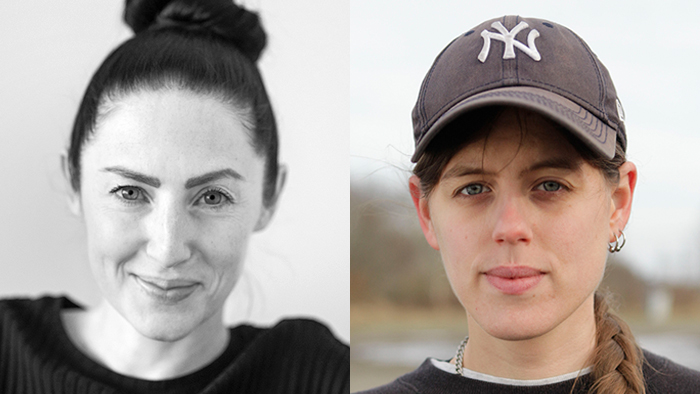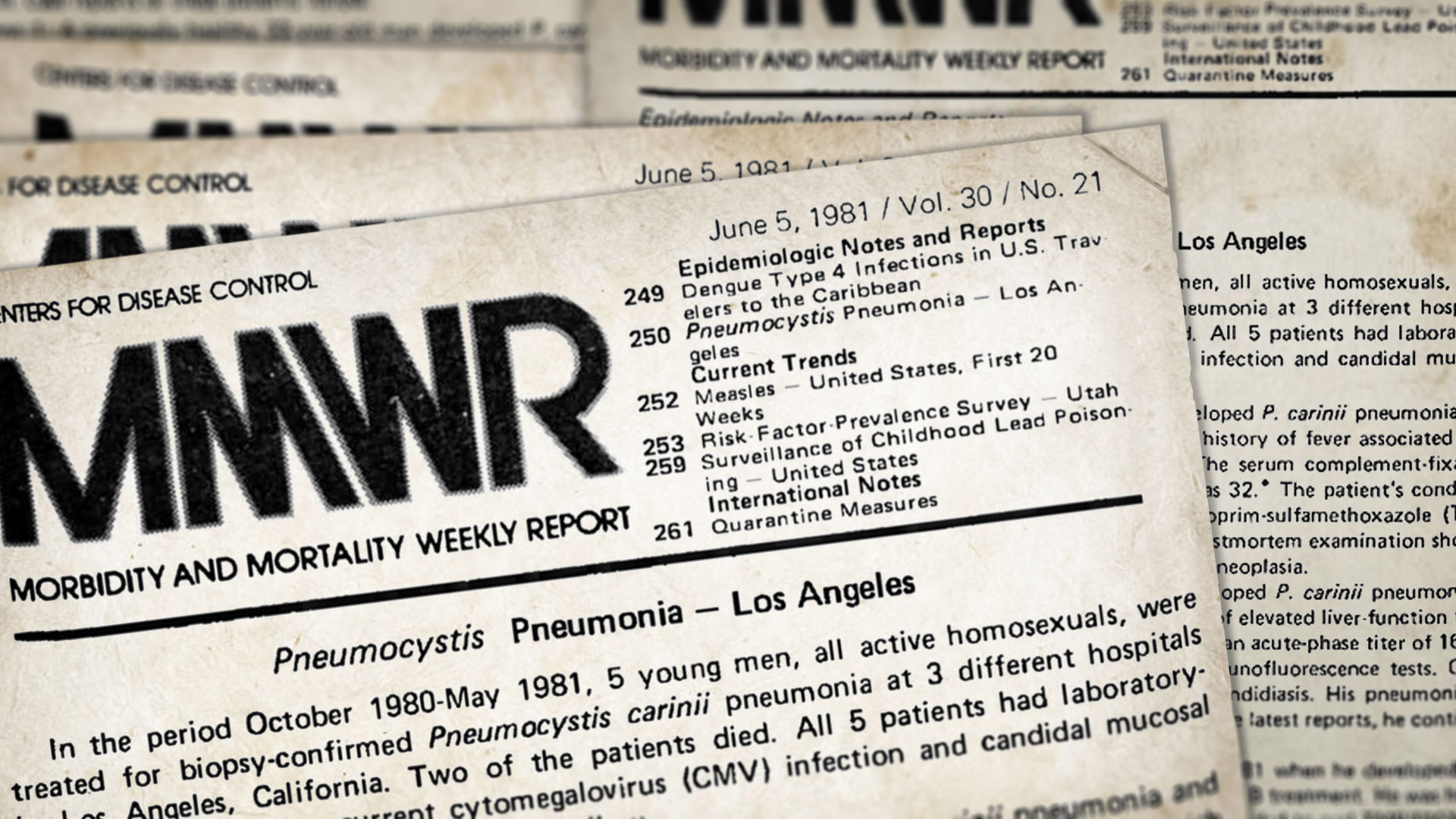You are viewing the public part of the archive. Login or request access to view more content.
Displaying 373-384 of 385 results
00:32:01
1988_108
Dr Samuel Okware, the director of National Ugandan AIDS Commission, talks about AIDS in Africa, global impact and commitment.
1988_108
00:12:27
1988_105
Dr Luc Montagnier and Dr Lars Olof Kallings in Montagnier’s office and laboratory at the Pasteur Institute in Paris. They talk about the HIV virus and the difficulties and possibilities of finding effective antiretroviral drug combinatoions in the future.
1988_105
00:10:22
1988_104
Nobel Prize Laureate Luc Montagnier answers questions on the origin of HIV, the spreading of the virus, prevention, and the possibility of a vaccine.
1988_104
00:05:41
1988_103
Interview with the French doctor Didier Jayle talks about his work informing students in schools about how HIV is spread and how it can be prevented. He is also asked how dealing with AIDS in his work affects his personal life.
1988_103
00:04:40
1988_102
Dr Didier Jayle talks about AIDS awareness, the importance of reaching out to young people, and how his work with AIDS patients affects him as a doctor and as a human being.
1988_102
00:16:35
AIDS - Föreställningar om en verklighet
"AIDS – Metaphor and Reality" is the very first Face of AIDS documentary from 1986, experts as well as people living with HIV and AIDS speak about stigma. The main message of this film is that AIDS is a worldwide issue which concerns everyone regardless of their sexual preferences.
1986_aids_forestallningar_om_en_verklighet
HIV and AIDS in the Movies
Since 1981 and the first cases of what was later to be called HIV and AIDS, moving images and film – like always, mostly American – have played a big part in how society has come to understand and be informed about the epidemic. According to many surveys over the years, more so than from sources like friends, doctors, school or newspapers. And, like the majority of films in film history, the stories have mostly been made by men, about men. In the 1980s, typical media representations of AIDS in the US were also under the influence of the political clout of the religious right and their conservative ideas about sex and LGBT issues. The early story of AIDS was all about "family values", homophobia, stereotyping and fear of the other.
How Feminists Responded to the AIDS crisis
The history of HIV and AIDS is not only about medical concerns, but of social exclusions and political struggles as well. From the outbreak of the epidemic, inequality and patterns of discrimination affected both the spread of the disease and various responses to it. As the epidemic almost immediately became associated with some of the most marginalized groups in the society, homophobia, racism, and disdain for people who use drugs provoked many of the early responses. But perhaps lesser known, gender subordination and sexism also played an essential role in fueling the epidemic.
Gender inequality increases women's vulnerability to HIV
"One night, I was coming back home at 3 am, drunk, and I decided to have a short cut, but in that corner, suddenly from nowhere, two men appear, one in the front and one behind me. By that time, I didn’t know I was at risk of HIV, but I knew that the rape situation changed me forever. Now that I have studied the issue, the connections between violence against women and HIV, I can tell you that is so evident, that we cannot avoid working with that. You really have to link those two issues.”
Remembering 1981 – Learnings from the past
It has now been forty years since the CDC bulletin Morbidity and Mortality Weekly Report (MMWR) described cases of a rare lung infection in five gay men in Los Angeles. This was the first official report of what would become known as AIDS – Acquired Immune Deficiency Syndrome. What reactions did the first reports of a strange, new disease generate – amongst medical researchers and doctors, in the gay community, and in the public at large? What can we learn from the past to meet the challenges of the future? In this theme, we have collected film clips from the archive, documentaries and essays on the HIV and AIDS pandemic.
Activism, healthcare & politics - the Swedish HIV & AIDS history
To acknowledge the World AIDS Day this year the Face of AIDS Film Archive choses to dive into the archive and focus on the history of AIDS and HIV in Sweden: the first diagnosed case, the activists, the politicians, the health care and the public. We have put together a short film on this theme with clips from the archive – a short film on a constantly current topic from our vast collection of material.
Theme San Francisco
The 23rd International AIDS Conference was set to be held in San Francisco and Oakland in 6-10 July 2020. Due to the Covid-19 pandemic, the conference will be virtual this year. With this theme, the Face of AIDS Archive pays tribute to the conference, the cities of San Francisco and Oakland, and the achievements made in the HIV response. Watch documentaries and interviews from the 1980s to the present, hear the voices of activists, patients, researchers and hospital staff.












